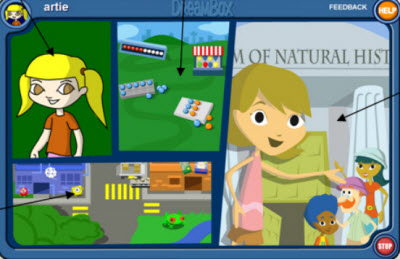 DreamBox Learning, an educational game company with a novel adaptive learning technology, said today it has hired Jessie Woolley-Wilson as its new chief executive.
DreamBox Learning, an educational game company with a novel adaptive learning technology, said today it has hired Jessie Woolley-Wilson as its new chief executive.
Wooley-Wilson (pictured below) has spent two decades in education technology companies. She was president of K-12 at Blackboard, an electronic learning company. And she was executive vice president of LeapFrog Enterprises, the education technology toy company. She also served as president of LeapFrog SchoolJouse, the arm of LeapFrog that dealt with schools. And she worked at MyRoad.com, The College Board, and Kaplan.
“Jessie brings an enormous wealth of knowledge and expertise in the area of e-learning as well as a stellar track record in her ability to lead and execute,” said Hastings, who remains chairman of DreamBox.
Wooley-Wilson said her goal is to expand the company’s growth. The company will likely grow its staff to 40 or 50 people by year end, compared to just 20 back in April.
The appointment comes after the April acquisition of DreamBox by The Charter Fund and Netflix founder Reed Hastings. At the time, the acquirers invested $10 million in DreamBox. Hastings is an education philanthropist and said in April that he was excited about the Bellevue, Wash.-based company because it had designed its software to adapt to a child’s progress in online math lessons.
Wooley-Wilson said in an interview that the same thing appealed to her. DreamBox’s math game can adjust its difficulty level to suit kindergartners through third graders, making the lessons easier or harder based on how well the child does. This responsiveness is a fundamental advantage for DreamBox, Wooley-Wilson said, and it is not unlike the combination of analytics and constant refinement that marks a Web 2.0 company.
If you combine the adaptive software with a deep expertise in education and entertainment, you can come up with software that will work well for kids in school or home environments. In contrast to one-size-fits-all lesson plans, DreamBox offers the chance for individualized instruction for kids.

DreamBox’s first program was a math program for kindergarten age kids that tracked their learning progress and produced reports for parents. It showed how much progress a child had made through a series of fun tasks that were secretly testing math concepts. That is, the kids didn’t realize they were doing math; they simply thought they were playing online games.
DreamBox raised $7.1 million from angel investors. The company was founded in 2006 and released DreamBox Learning K-2 Math in January, 2009. That was a home-based product and in April, 2009, at the urging of teachers, the company released a classroom version. Earlier this month, the company released K-3 Math, extending the content to third grade lessons. The overall goal is to release online games using the same learning assessment engine. The engine tweaks the program, adjusting for the child’s progress and making the learning harder or easier as needed.



